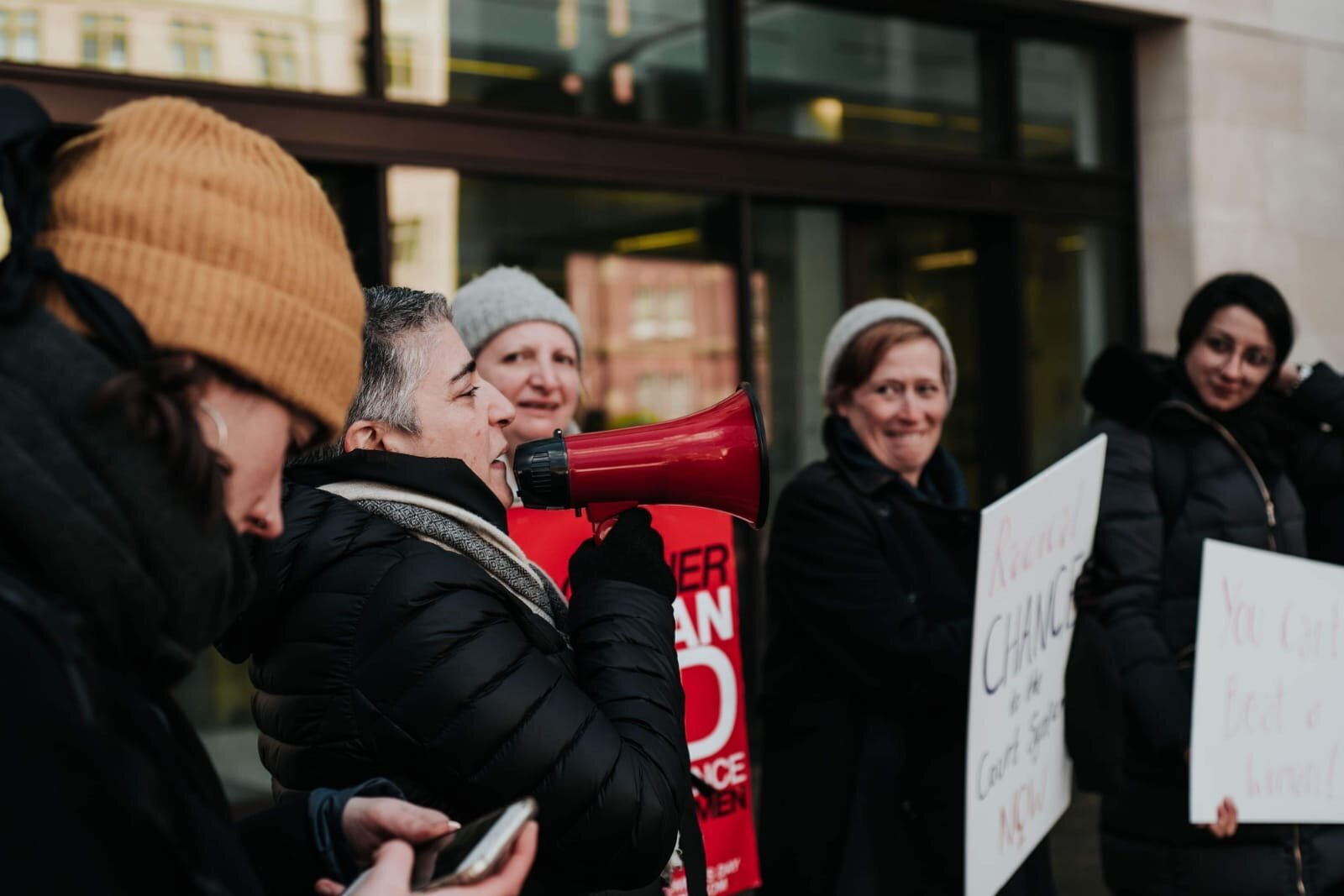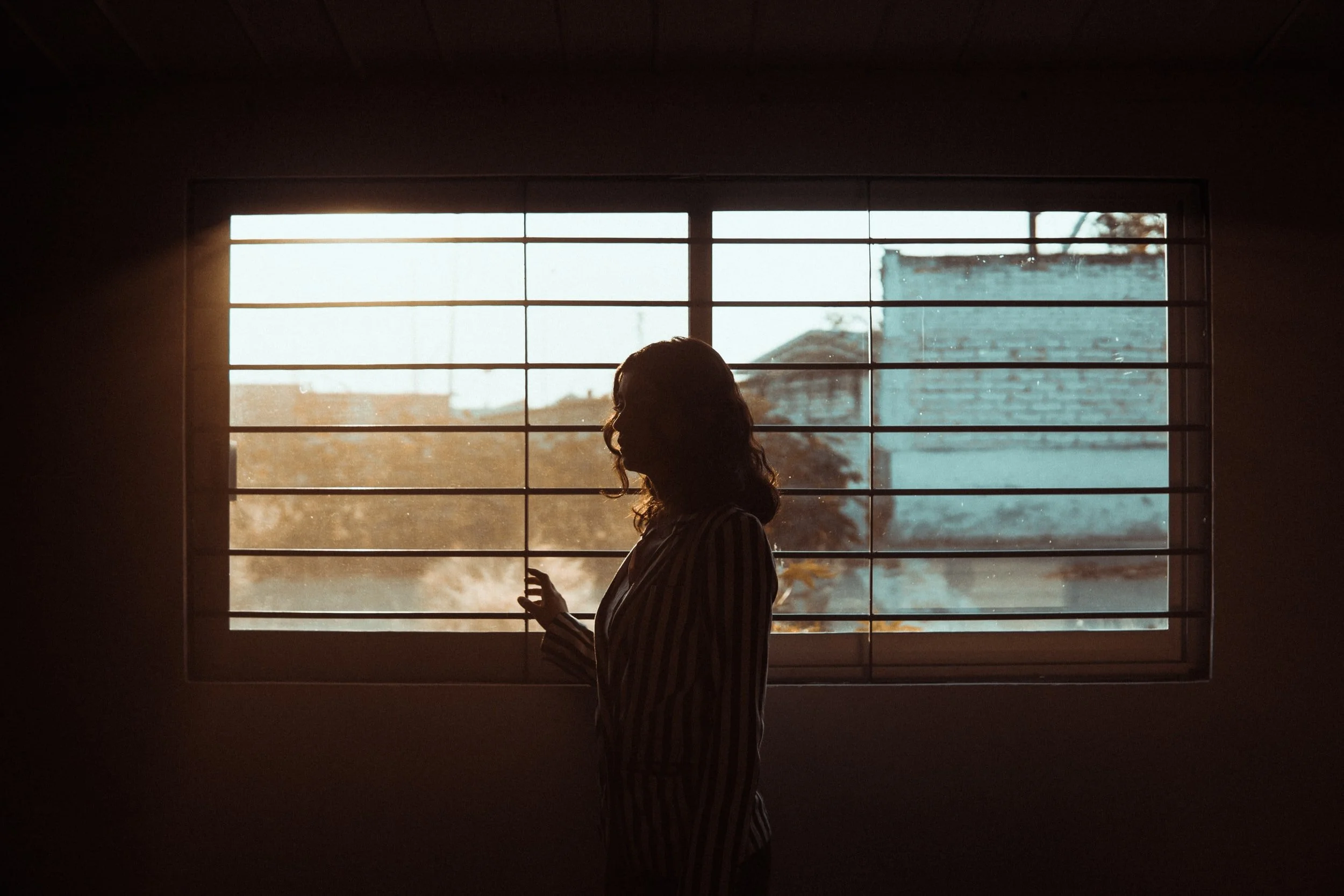FiLiA has spoken to women across the UK with disabilities or caring responsibilities about the Government’s welfare reform proposals. It is clear from what they have told us that the reforms could lead to significant harm – as we set out in our response to the Department for Work and Pensions’ consultation, Pathways to Work: Reforming Benefits and Support to Get Britain Working Green Paper. Further detail, as well as our response and Parliamentary briefing can be found here.
Learn about the causes we are fighting for and how you can get involved.
Narrow your search or read everything.
The FiLiA Campaigns and Policy team have been working to support women to contribute to the Government’s consultation on disability benefits reform. We wrote to Parliamentarians who are also working to support disabled people to share our work and some of the responses we've had, and invite them to support and work with us to stand up for disabled women and carers who could be devastated by the proposed reforms.
Many of the women we have spoken to feel frustrated with decision makers who seem blind to the female perspective or the impact their work has on women.
Behind our laws, practice and provision, workplace policies or budget cuts, there’s often an invisible bias ‒ one that disproportionately adversely affects women.
And the impact is felt even harder by those at the intersections of race, disability, class and migration status. Too often the needs of women with disabilities, ethnic minority and migrant women, lesbians and women living in poverty are ignored, their voices sidelined, and their struggles compounded by policies that never considered them in the first place.
Then once they've grown into women, the medical model dismisses women as exaggerating pain ‒ simply walking hysterical hormone sacks fainting at the slightest breeze.
Maybe they grow up and find someone to love and support them? But abuse and exploitation of disabled women figures show they are more vulnerable and have fewer services available for them. There are less shelters; they are less able to just quickly jump on a free train and escape and risk losing the services and medication they need.
This is not all of us ‒ the killed ones are missing.
This was the chanting of thousands of mostly Women that marched along the Gran Via in Madrid yesterday, accompanied by the drumming of a group of Women dressed in black that seemed to replicate the heartbeat of those of us there and echo the ones of those who are no longer with us.
Schizophrenia is a serious mental illness involving psychosis (loss of contact with reality), with many myths associated. Women experience it differently to men, and face specific difficulties associated with their experiences.
It's vital that the needs of Women with schizophrenia are considered, particularly around MVAWG. Sisterhood with Women affected by serious mental illnesses, although sometimes difficult, is desperately important.
The Carmen Sanchez Foundation foundation was created "as a response by Carmen Sánchez to the omissions and indolence of the Mexican authorities and the public health system in guaranteeing and enforcing the human rights of women who have survived an acid attack. But also as an act of love.” In Mexico this serious assault has also been associated with violence against women and girls, with disproportionately higher numbers of male perpetrators (87% of attackers)* assaulting women (94% of victims)*
FiLiA volunteer Freya highlights the disturbing omission of disabled women's experiences and women’s experiences generally within the healthcare system. Post-pandemic, as women share their experiences of reproductive healthcare failures, it is vital that disabled and chronically ill women are those leading the conversations around health and healthcare.
Professor Jo Phoenix, Chair in Criminology at The Open University, a Trustee of the Centre for Crime and Justice Studies and the Co-Convenor of the Gender Critical Research Network at the Open University, joins Raquel Rosario Sanchez to discuss the rights of women in prison, her decades-long work in Criminology and her personal experience being in the centre of the fight to uphold academic freedom.
This prose poem is the cri de coeur of a woman living at the intersection, pilloried between single motherhood and chronic illness. A snapshot of an invisible life that aims to give voice to the intricate daily struggles faced by disabled mothers - unseen, unheard, unable to access the economic and cultural capital that will get 'our issues' onto the wider feminist agenda. It is time to hear the voices of disabled women. It is time for those voices to be prioritised and amplified within Radical Feminism.
Rahila Gupta is a writer, journalist and activist. She has published a number of books, short stories and poems, including Don’t Wake Me: The Ballad of Nihal Armstrong and Enslaved: The New British Slavery. Rahila has been involved with Southall Black Sisters for many years. She joins Sally Jackson in conversation about her work, the importance of stories, the significance of women organising in Rojava and exploring themes such as disability, inclusion, displacement and survival.
By Jacqueline Winstanley
It’s hard to imagine that in a year when we celebrate the many achievements of women, once again we see conflicting criteria within the Access to Work award. Contrary to its stated intent and potential to lift disabled women out of poverty, it is now acting in ways which serve to remove the right to Advocacy and or Third Party Consent to assist with the application process.


















